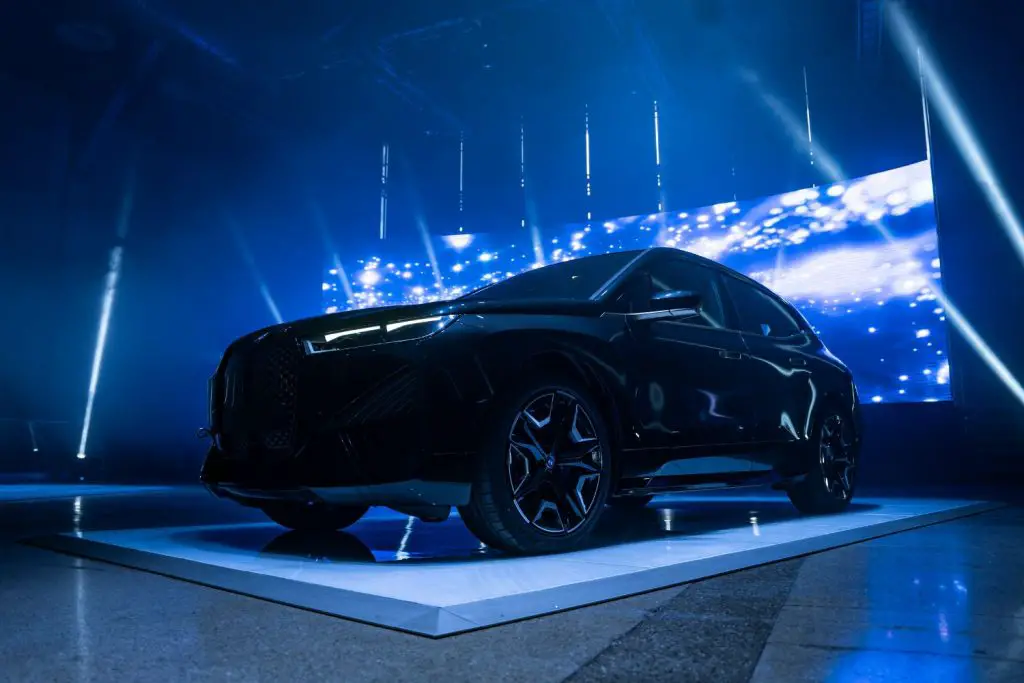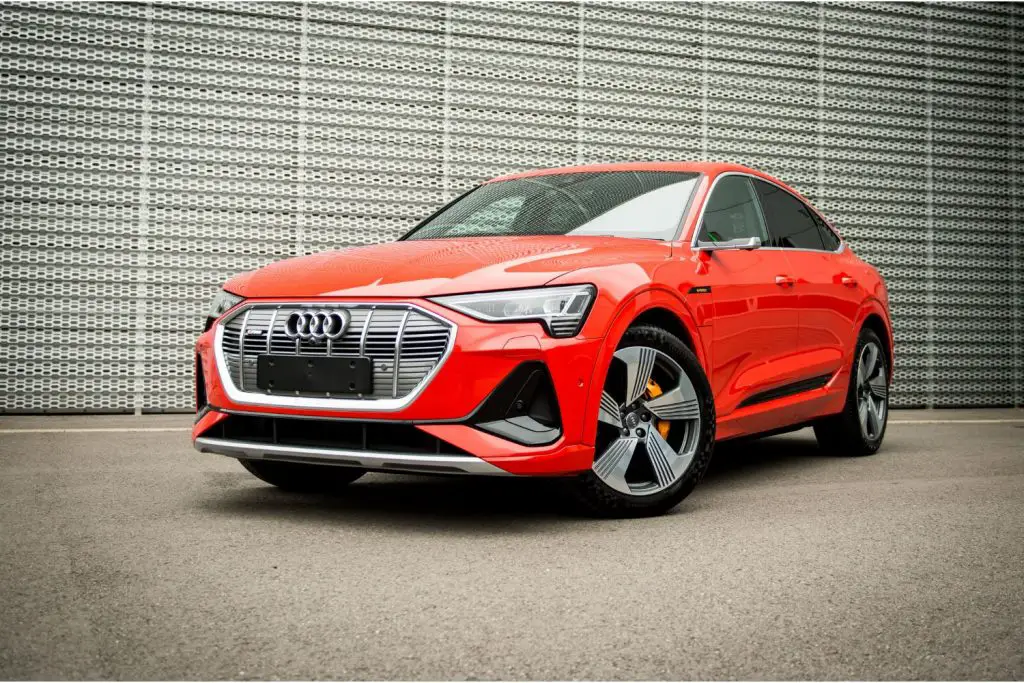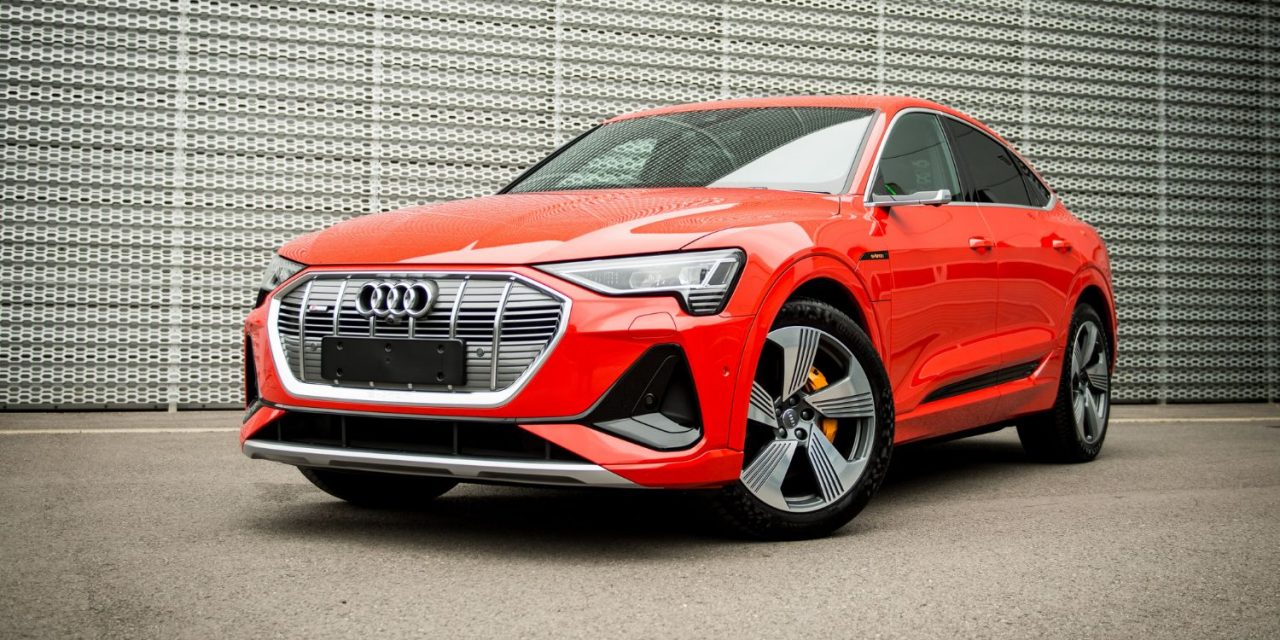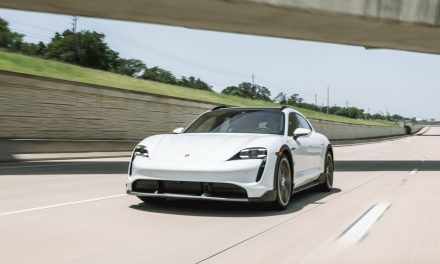A new class of electric vehicle is emerging, one that tips the scales at over 6,000 pounds GVWR. These heavy-duty EVs are being developed by a number of major automakers and could soon become a common sight on our roads and highways. While they might not be powered by gasoline like we are used to, these EVs are sure to have a major impact on the automotive market. So what’s all the fuss about? Let’s take a closer look.
Below you will find all of the electric vehicles that are over 6,000 pounds, plus a little bit more of each! Then we will be answering some of those burning questions that you might have about weight of vehicles (Please Note: This whole list is around GVWR, which we will talk about later in the article), and electric vehicles specifically.
- 1. Tesla Model X – 6,250 pounds
- 2. Mercedes-Benz EQS-Class – 6,672 pounds
- 3. BMW iX – 6,867 pounds
- 4. Audi e-tron – 7,066 pounds
- 5. Ford F-150 Lightning – 8,250 pounds
- 6. Rivian R1T – 8,532 pounds
- 7. GMC Hummer EV – 10,550 pounds
- Why are electric vehicles so heavy?
- What does GVWR mean?
- How is GVWR different from Curb Weight?
- Conclusion
| Vehicle | Gross Vehicle Weight Rating (GVWR) in Pounds | Vehicle Type |
|---|---|---|
| Tesla Model X | 6,250 | SUV |
| Mercedes-Benz EQS-Class | 6,672 | Car |
| BMW iX | 6,867 | SUV |
| Audi e-tron | 7,066 | SUV |
| Ford F-150 Lightning | 8,250 | Truck |
| Rivian R1T | 8,532 | Truck |
| GMC Hummer EV | 10,550 | Truck |
1. Tesla Model X – 6,250 pounds

The Tesla Model X is a full-size SUV that weighs in at a whopping 6,250 pounds. That’s almost 3 tons! And yet, despite its size, the Model X is surprisingly nimble thanks to its all-wheel drive and low center of gravity.
The SUV also comes packed with features, including an autopilot system (that is quite controversial) that can keep the car in its lane and even change lanes for you, adaptive cruise control, and a “bioweapon defense mode” that filters out harmful airborne contaminants, this is essentially an air filter, but leave it to Tesla to make it sound interesting.
The Tesla Model X was one of the first crazy heavy electric SUVs on the market of this generation. However, there have been plenty to follow up on, as there are six more after this that are even heavier.
2. Mercedes-Benz EQS-Class – 6,672 pounds

The all-new Mercedes-Benz EQS is the company’s first fully electric luxury sedan, and it weighs 6,672 pounds. But don’t let its size fool you, the EQS is packed with cutting-edge technology and features that make it one of the most innovative and efficient cars on the market.
The EQS is essentially the S-Class electric vehicle. While the S-Class is incredibly imprtant to Mercedes’ lineup, they knew they needed to at least add an all electric version, so that is where the EQS-Class came from.
The EQS has a range of up to 350 miles on a single charge, making it perfect for long-distance travel (maybe not a cross-country road trip though).
Additionally, the EQS comes equipped with an advanced infotainment system, wireless charging, and a host of driver-assistance features.
And because it’s electric, the EQS is also significantly quieter than its gasoline-powered counterparts. But perhaps the best thing about the EQS is that it’s just as fun to drive as it is practical. With instant torque and a smooth ride, the EQS is a truly impressive all-around package.
3. BMW iX – 6,867 pounds

The all-new BMW iX is one of the newest additions to BMW’s i series of vehicles. This luxury SUV tips the scales at a whopping 6,867 pounds, making it one of the heaviest vehicles on the market. But despite its size, the iX boasts an impressive list of features, including a spacious interior, an advanced infotainment system (including Apple CarPlay), and a sleek exterior design (this is controversial of course).
Under the hood, the iX is powered by two electric motors that deliver a combined output of 516 horsepower. This allows the SUV to accelerate from 0-60 mph in just 4.6 seconds. With a range of over 300 miles, the iX is also capable of tackling long distances with ease. Whether you’re looking for a luxurious daily driver or a capable weekend driver, the BMW iX has something for everyone.
4. Audi e-tron – 7,066 pounds

The new Audi e-tron is 7,066 pounds. For context, that’s about the same as an elephant. But unlike an elephant, the e-tron has plenty of features that help it stand out from the herd.
First and foremost is its all-electric powertrain, which gives the SUV a range of over 200 miles. It also comes standard with Audi’s Quattro all-wheel drive system, making it a capable off-roader. And for those who want to tow, the e-tron can handle up to 4,000 pounds.
While the e-Tron is not the most compelling option on this list, I am a huge fan of Audi, and their products, so this one is definitely worth at least keeping in mind if you are on the hunt for an EV SUV.
5. Ford F-150 Lightning – 8,250 pounds
Weighing in at a whopping 8,250 pounds, the new Ford F-150 Lightning is one hefty truck. But it’s not all brawn and no brains – this truck comes packed with some serious tech features. For starters, the truck can act as a portable generator that can power your entire campsite, or even your home if you get it set up that way.
And if you need to tow anything, the Lightning has you covered there too – it can haul up to 10,000 pounds. But perhaps the most impressive feature is the truck’s lithium-ion battery pack.
This gives the Lightning a range of over 300 miles on a single charge, making it the perfect choice for long road trips. So whether you’re hauling gear or just cruising down the highway, the Ford F-150 Lightning is sure to get the job done.
The F-150 Lighting is the work truck of the newest batch of EVs, and is actually very similar to the standard F-150 (which makes it awesome for modifying out of the box), including the entry point of just shy of $40,000, of course, you can get it over $100,000 if you really want to.
6. Rivian R1T – 8,532 pounds

The Rivian R1T is an extremely cool entry to the electric vehicle (no pun intended) market. At 8,532 pounds, it’s one of the heaviest electric vehicles on the market. But all that weight is put to good use, as the R1T is able to tow up to 11,000 pounds.
It also has a range of over 400 miles, making it perfect for long-distance trips. And with its six-passenger capacity, the R1T can accommodate a large family or group of friends. All in all, the Rivian R1T is a true powerhouse that is sure to turn heads wherever it goes.
The R1T is also a fantastic off-roader, overlander, and commuter as well. If I were to opt for an electric pickup truck at the moment, this would be my personal go-to option. This is due to its size, build quality, and overall usefulness for 95% of what most people do in a day.
7. GMC Hummer EV – 10,550 pounds
When General Motors announced that it was bringing back the Hummer, there was a lot of excitement among car enthusiasts. However, the new GMC Hummer EV is a far cry from the gas-guzzling SUV that was discontinued in 2010. The new EV is significantly lighter, weighing in at 10,550 pounds.
It also has a range of over 350 miles and can go from 0 to 60 mph in just 3 seconds (yes, 3 seconds…. in a 10,550 pound truck).
In addition, the Hummer EV comes with a host of features that make it perfect for off-roading, including four-wheel drive, Michelin all-terrain tires, and a unique air suspension system. With its all-electric powertrain and impressive capabilities, the GMC Hummer EV is sure to be a blast to drive.
Why are electric vehicles so heavy?
Electric vehicles are often criticized for being too heavy, but there are actually a few reasons for this.
- Electric vehicles need to have a large battery pack in order to store enough energy to power the car. This battery pack adds a significant amount of weight to the car.
- Electric motors are usually heavier than gasoline engines.
- Electric vehicles often have extra features that add weight, such as regenerative braking systems.
All of these factors contribute to the heaviness of electric vehicles. However, it is worth noting that the weight of an electric vehicle does not necessarily mean that it is less efficient or more difficult to drive.
In fact, many electric vehicles are a breeze to operate, as the batteries are spread out through the vehicle, and are lower down. This means a very balanced, and low center of gravity.
What does GVWR mean?
When shopping for a new car, you may have come across the term “gross vehicle weight rating” or “GVWR.” But what does this rating actually mean?
In short, the GVWR is the maximum weight that a vehicle is able to safely carry. This includes both the vehicle itself and any passengers or cargo that may be on board.
The GVWR is typically listed in the owner’s manual or on a placard located on the driver’s side doorjamb. It’s important to note that exceeding the GVWR can put strain on a vehicle’s engine, brakes, and tires, and can even lead to accidents.
So when packing up your car for a road trip, be sure to check the GVWR and plan accordingly!
How is GVWR different from Curb Weight?
When it comes to vehicles, there are a lot of different terms and acronyms that can be confusing for the average person. Two such terms are GVWR and curb weight. So, what’s the difference? GVWR, or Gross Vehicular Weight Rating, is the maximum weight that a vehicle is designed to carry.
This includes the weight of the vehicle itself, as well as any passengers, cargo, or other items that may be loaded into it. Curb weight, on the other hand, is simply the weight of the vehicle with nothing else added to it. In other words, it’s the empty weight of the vehicle.
With all that being said, GVWR will always be greater than curb weight since it takes into account everything that the vehicle may need to carry. Keep this in mind next time you’re trying to figure out how much your car can really haul!
Conclusion
So there you have it, those are all of the electric vehicles on the market today, that are over 6,000 pounds! We do our best to keep these articles up to date and accurate, however if we missed something or something needs updated, let us know in the comments!





